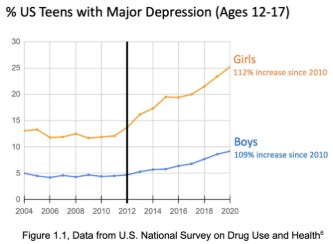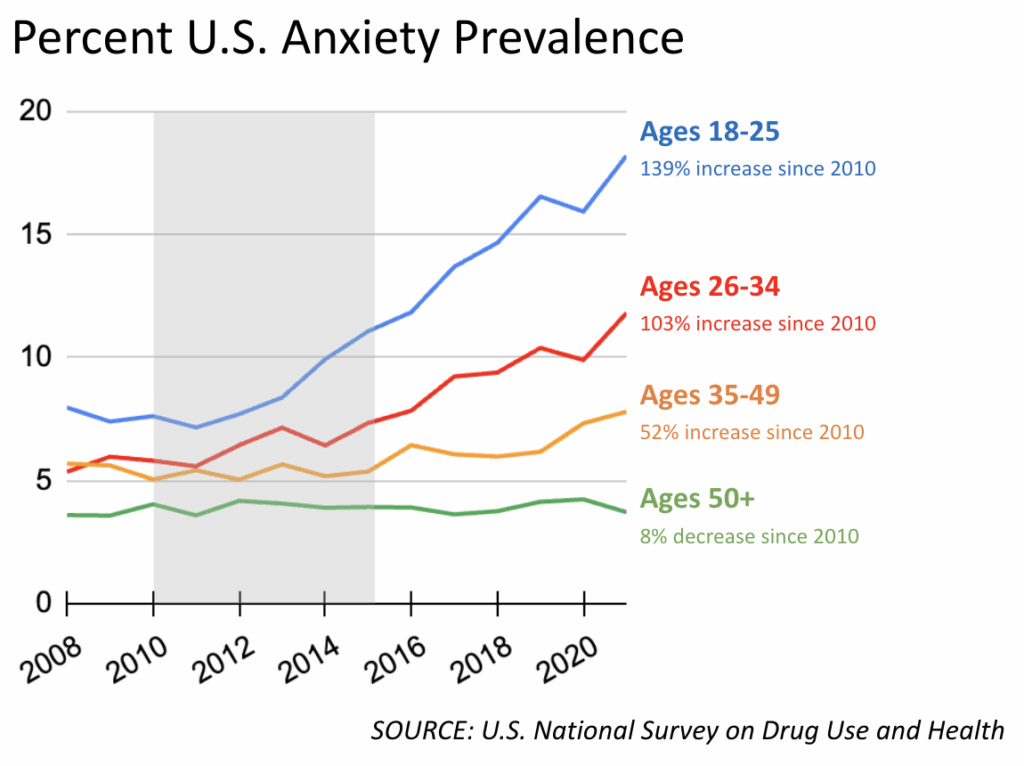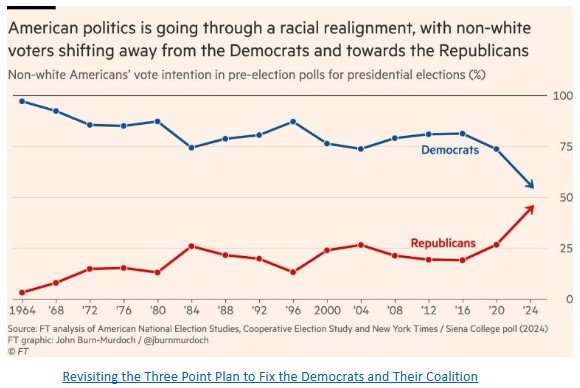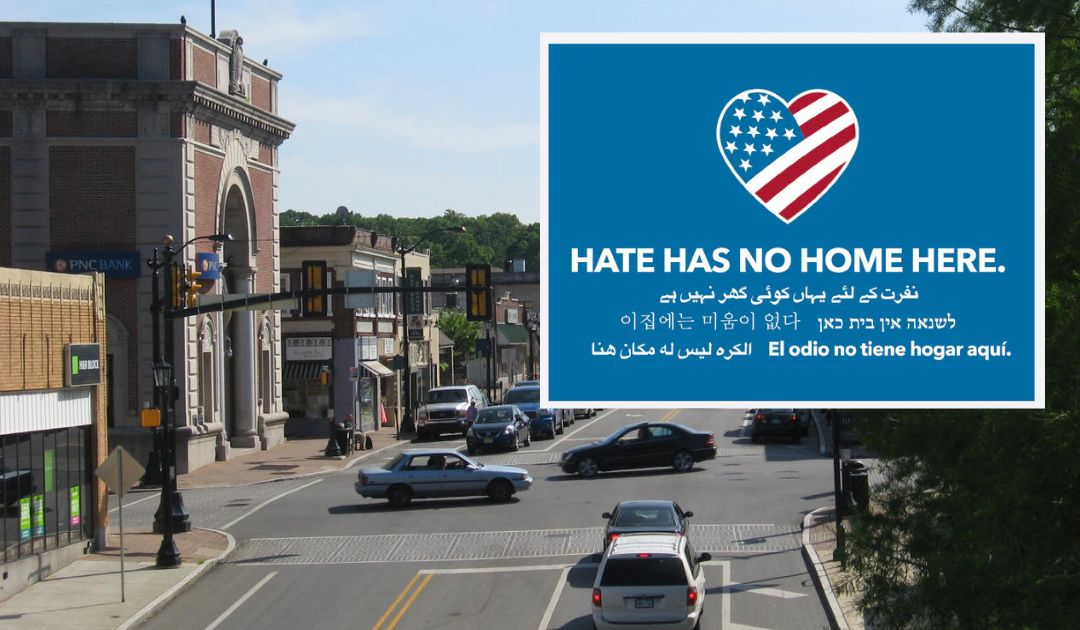In 2016, local residents launched a campaign to saturate the Glenside community and surrounding areas with lawn signs denouncing hate. They were intentionally non-partisan, printed with red on one side and blue on the other.
Lately, it’s become a bit of an online Archie Bunker vs. Michael Stivic screaming match.
In September, an Abington resident asked me to promote a vigil for Charlie Kirk and three police officers. The Facebook post which shares the article has accumulated 175 comments. 44 of those comments are in response to “Can’t they just honor him in private at their next Klan meeting?”
Four days later, I interviewed a Glenside resident who had joined a humanitarian aid fleet to Gaza. That share racked up 48 comments, most of which pick a clear side in arguably the most complex and deep-rooted ongoing dispute on the planet. Word choices include “coward”, “colonizer”, and “keyboard warrior that needs mental health treatment”.
Six days later, and in response to a peaceful political rally, two of our readers labeled each other “Pud Gazer”, “petulant child” and “poopyhead”. One said to the other, “you have no penis”.
These are not the worst of the comments. They are recent examples. I was once asked to referee the “cesspool” as someone described it, which is easier said than done (no one likes censorship when it’s done to them), and is by no means specific to Glenside. I get requests to delete blatant racism every now and then, which I do. Everything else seems to be fair game.
Echo Chambering and the Classroom
I have a grandma-style flip phone. I had never published a social media post before I started writing for Glenside Local. I’ve never had a personal profile picture (check out my Facebook account). I (very) occasionally comment, but I mostly scroll and observe. I’m a people watcher. I love people and consider them the most interesting things in the universe. Maybe geologists feel that way about rocks.
In additional to journalism, for the past eight years I’ve taught courses at a couple local universities about belief systems (which are my favorite things about people). I’ve had the pleasure of discussing with 18-22-year-old students a wide variety of sensitive issues. We talk about the temptation to hyperfixate on one particular point of view over all others and negatively label those opposed.
Those discussions include research showing that our political preferences are 40-60% biological and significantly emotional. According to people who study our brains, when it comes to hot-button topics, we feel first (think fight or flight), critically assess second. And human beings have always operated that way. It’s only been within the last 10-15 years that we’ve been able to widely and semi-permanently share the rawest of our emotions in seconds (local public officials included). It’s a stacked deck which strongly favors the online platforms engineered to give us more of the emotions we want, and fewer of those we don’t.
The result of this engineering is referred to as an “echo chamber.” Students sometimes call them “filter bubbles.” Every social media user (Google.com included) is prone to them.
In more recent years, I’ve offered students a claim that politics has slowly taken over America’s religious divide. The claim is supported by various attitudinal shifts since around 1960 and the split seems to have reinvented itself around 2012-2014. Why then? According to Dr. Jonathan Haidt, this was the period when decontextualized media clips started going viral, and when the first adolescents became iPhone owners.
It hasn’t done much for their mental health (this is partly why I have a flip phone).


A few takes on the claim (there are many like these):
- How Politics Replaced Religion in America – The Atlantic
- Why Politics Became a ‘Replacement Religion’ – Public Affairs Council
- Politics has become the new religion in America – Shreveport Times
In other words, we’re storytelling, and the degree to which a given story is based on “fact” is irrelevant (“A People’s History of the United States” by Howard Zinn and “The End of Racism: Principles for a Multiracial Society” by Dinesh D’Souza are case studies). Sometimes people tell stories on behalf of “God”, others on behalf of “America”, others on behalf of the “[fill in the blank] community”. Projections and emotional manipulatives abound.
Put another way, the various snippets and clips and memes and shares have become a form of religious engagement: they create belonging, meaning and purpose. Showing your allegiance in 2025 is to positively speak about the “moral” side, and/or denounce and mock the “immoral” side. You don’t really need to know much about the issue at hand; you just need to say the right things.
But the right things to some people are the wrong things to others, especially when taken completely out of context. Trolling is an unfortunate feature of social media. Trolling perceived trolls is an interesting one: Somehow, using today’s moral compass, “fighting hate” is to ad hominem an A.I. avatar or your next-door neighbor.


Photos: Ethan Miller / Getty Images file, Barbara Favola via X.com

Moving Forward
Two years ago, I was at simultaneous Israeli and Palestinian rallies outside of Representative Dean’s office. Both groups remained one hundred percent peaceful. I have never been to or heard of a local demonstration since 2023 that was interrupted by opposing hooligans (please correct me if I am wrong). So the good news is, for the most part, we’re confining public bigotry to the internet.
My classroom experiences are proof enough to me that people—even young adults with plenty of emotions and plenty of screen time—can calmly relate to and reflect upon a lot more than we sometimes give ourselves credit for. All I am pointing out is that online political activism is evolving. It’s become very good at dividing users into “us” and “them” in the same ways people have always divided themselves over superficial, ugly-headed narratives. We have overcome many beliefs that are now considered silly and outdated because we slowly realized we were wrong.
Who benefits and who loses from constant outrage? I’ll let it up to Glenside, and I’ll let Bill Maher’s recent monologue end my own:
For all the latest news, follow us on Facebook or sign up for Glenside Local’s “Daily Buzz” newsletter here.

